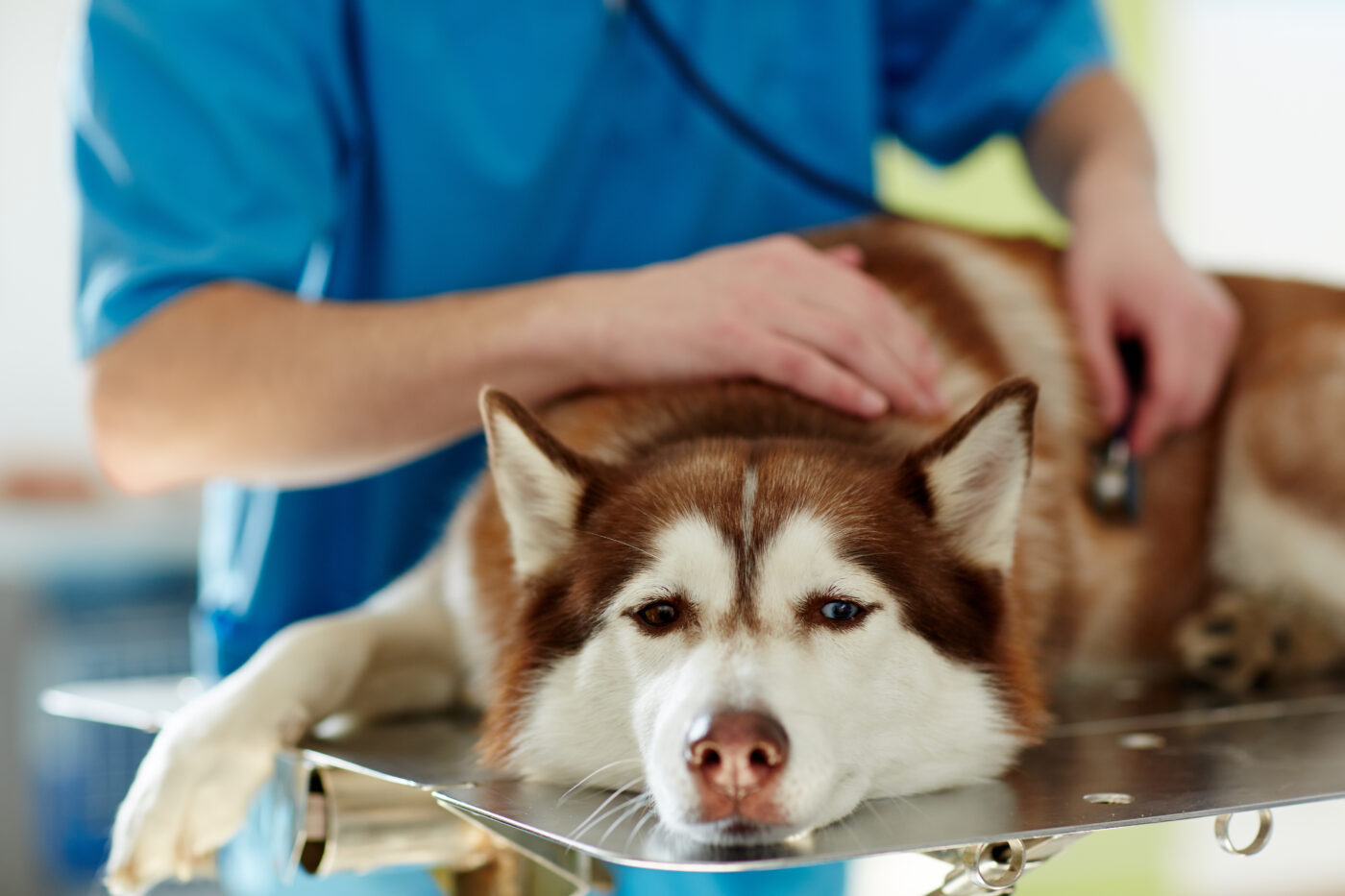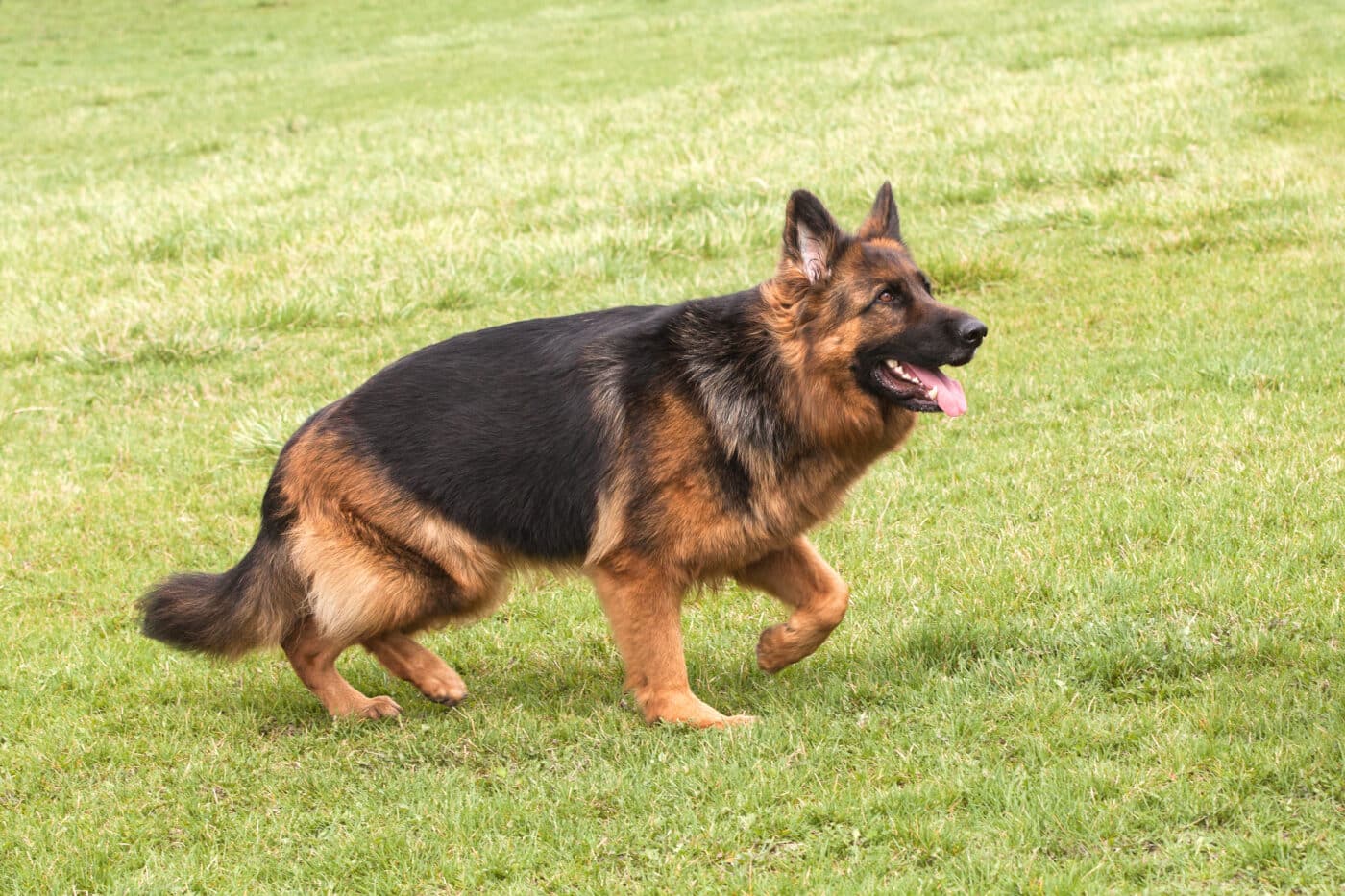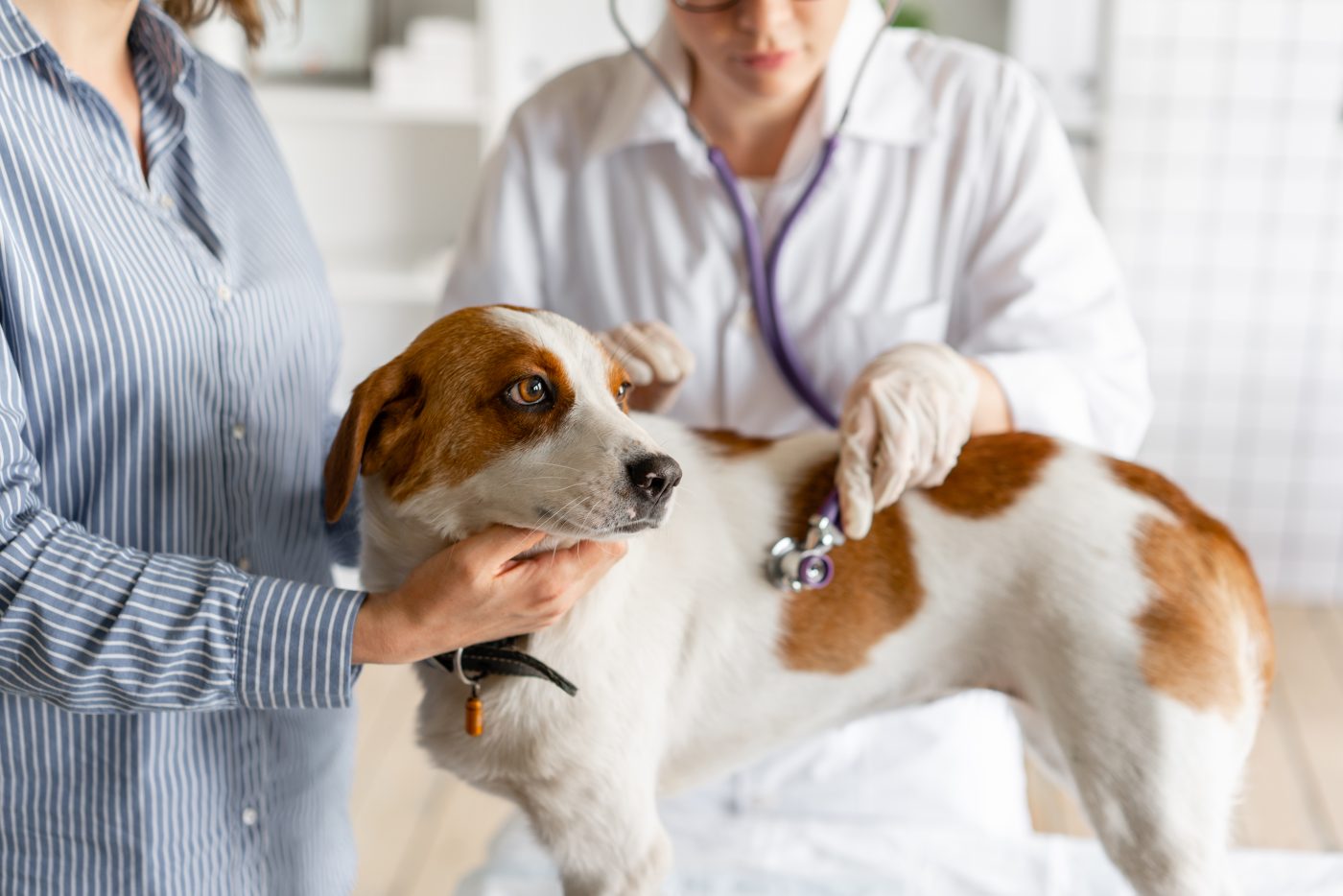 Shutterstock
Shutterstock
Owning a dog brings immense joy, but it also comes with the responsibility of maintaining their well-being. While all dogs can face health issues, some problems are more common than others. Whether due to genetics or conditions that develop over time, being aware of potential health challenges is key for dog owners. Staying informed allows for early detection, prompt treatment, and a happier, healthier life for your furry companion. By understanding these issues, you can better care for your dog’s overall health and ensure they thrive.
Hip Dysplasia
 Shutterstock
Shutterstock
Hip dysplasia is a common orthopedic condition affecting many dog breeds, particularly large and giant ones. It occurs when the hip joint doesn’t develop properly, leading to arthritis and pain over time. This condition often affects breeding, such as that of German Shepherds, Labradors, and Golden Retrievers. Owners might notice their dogs experiencing difficulty with activities like running, jumping, or even standing up after resting. Maintaining a healthy weight, regular exercise, and supplements can help manage the condition, but surgery might be necessary in severe cases.
Allergies
 Shutterstock
Shutterstock
Allergies in dogs can manifest in several ways, from itchy skin to gastrointestinal issues. Certain breeds, such as Bulldogs, Boxers, and West Highland White Terriers, are more prone to environmental and food allergies. Common triggers include pollen, dust mites, and specific ingredients in food. Dogs with allergies often exhibit symptoms like excessive scratching, paw licking, or ear infections. Managing allergies might involve a combination of hypoallergenic diets, medications, and changes in their living environment. To develop an effective treatment plan, owners should consult their vet if they suspect their dog has allergies.
Obesity
 Shutterstock
Shutterstock
Obesity is a rising concern in the dog world, with many breeds prone to packing on extra pounds. Breeds like Dachshunds, Beagles, and Pugs are particularly susceptible to weight gain due to their love of food and lower activity levels. Obesity in dogs can lead to a range of health issues, including diabetes, joint problems, and heart disease. Maintaining a balanced diet and regular exercise is crucial to preventing weight gain. Owners should work closely with their vet to monitor their dog’s weight and ensure they stay fit and healthy.
Dental Disease
 Shutterstock
Shutterstock
Dental problems are one of the most overlooked health issues in dogs, yet they can lead to significant pain and infection if untreated. Small breeds, like Chihuahuas, Yorkies, and Pomeranians, are especially prone to dental disease due to overcrowded teeth. Plaque buildup, gingivitis, and tooth loss can occur without dental hygiene. Regular brushing, dental chews, and professional cleanings can help prevent dental issues. Owners should watch for discomfort while eating, bad breath, or excessive drooling, as these can indicate dental problems.
Ear Infections
 Shutterstock
Shutterstock
Dogs with floppy ears or those that spend much time in the water, such as Cocker Spaniels, Labrador Retrievers, and Basset Hounds, are prone to ear infections. Ear infections can be caused by bacteria, yeast, or mites, leading to symptoms like head shaking, ear scratching, and a foul odor. Regular ear cleaning, especially after swimming or bathing, can help prevent infections. If left untreated, chronic ear infections can lead to hearing loss or damage to the ear canal, so early intervention is key.
Bloat (Gastric Dilatation-Volvulus)
 Shutterstock
Shutterstock
Bloat, or gastric dilatation-volvulus (GDV), is a life-threatening condition commonly affecting deep-chested breeds like Great Danes, Dobermans, and Boxers. It occurs when the stomach fills with gas and twists, cutting off blood flow and causing the stomach to distend. Symptoms include a swollen abdomen, restlessness, excessive drooling, and unsuccessful attempts to vomit. Bloat requires immediate veterinary intervention, and surgery is often necessary to correct the twisted stomach. Preventative measures include feeding smaller, more frequent meals and avoiding vigorous activity after eating.
Hypothyroidism
 Shutterstock
Shutterstock
Hypothyroidism is a hormonal disorder that affects dogs when the thyroid gland doesn’t produce enough hormones. Breeds like Golden Retrievers, Dobermans, and Irish Setters are more prone to this condition. Symptoms of hypothyroidism include weight gain, lethargy, hair loss, and a dull coat. While there is no cure, hypothyroidism can be easily managed with daily medication and regular check-ups. If left untreated, hypothyroidism can lead to more severe issues like heart disease or nerve damage, so early diagnosis and treatment are essential.
Arthritis
 Shutterstock
Shutterstock
As dogs age, many will experience arthritis, especially larger breeds like Rottweilers, Mastiffs, and Labrador Retrievers. Arthritis is a degenerative joint disease that causes pain, stiffness, and reduced mobility. While it’s more common in senior dogs, it can also affect younger dogs, particularly those with joint conditions like hip dysplasia or previous injuries. Symptoms include reluctance to walk or climb stairs, limping, and difficulty getting up after rest. Regular exercise, joint supplements, and anti-inflammatory medications can help manage the pain and keep your dog active.
Skin Infections
 Shutterstock
Shutterstock
Dogs with skin folds, such as Bulldogs, Shar-Peis, and Pugs, are prone to skin infections due to the moist environment between their folds. Bacteria and yeast thrive in these warm, damp areas, leading to irritation and infection. Owners should regularly clean their dog’s skin folds and keep them dry to prevent infection. Symptoms include redness, itching, and a foul odor. These infections can worsen and cause more serious health issues if left untreated. Regular veterinary care and proper grooming are essential for managing skin infections in these breeds.
Heart Disease
 Shutterstock
Shutterstock
Heart disease is a common health issue in dogs, particularly in breeds like Cavalier King Charles Spaniels, Boxers, and Doberman Pinschers. Conditions like mitral valve disease (MVD) and dilated cardiomyopathy (DCM) can lead to heart failure if left untreated. Early symptoms include coughing, lethargy, and difficulty breathing. Regular vet check-ups and heart health screenings are crucial for detecting heart disease early. Dogs with heart disease can still lead fulfilling lives with the right treatment plan, including medications and dietary changes.
A Lifetime of Care
 Shutterstock
Shutterstock
While these common health problems can be challenging, understanding them enables you to give your dog the best care possible. Regular veterinary check-ups, proper nutrition, exercise, and attention to breed-specific health risks are crucial for ensuring your dog lives long and healthy. By staying informed and proactive about your dog’s well-being, you can catch potential issues early, manage them effectively, and help your pet avoid serious health complications. With the right care and attention, you’ll ensure a robust and lasting bond with your furry companion for many happy years.
 Toledo, United States.
Toledo, United States.